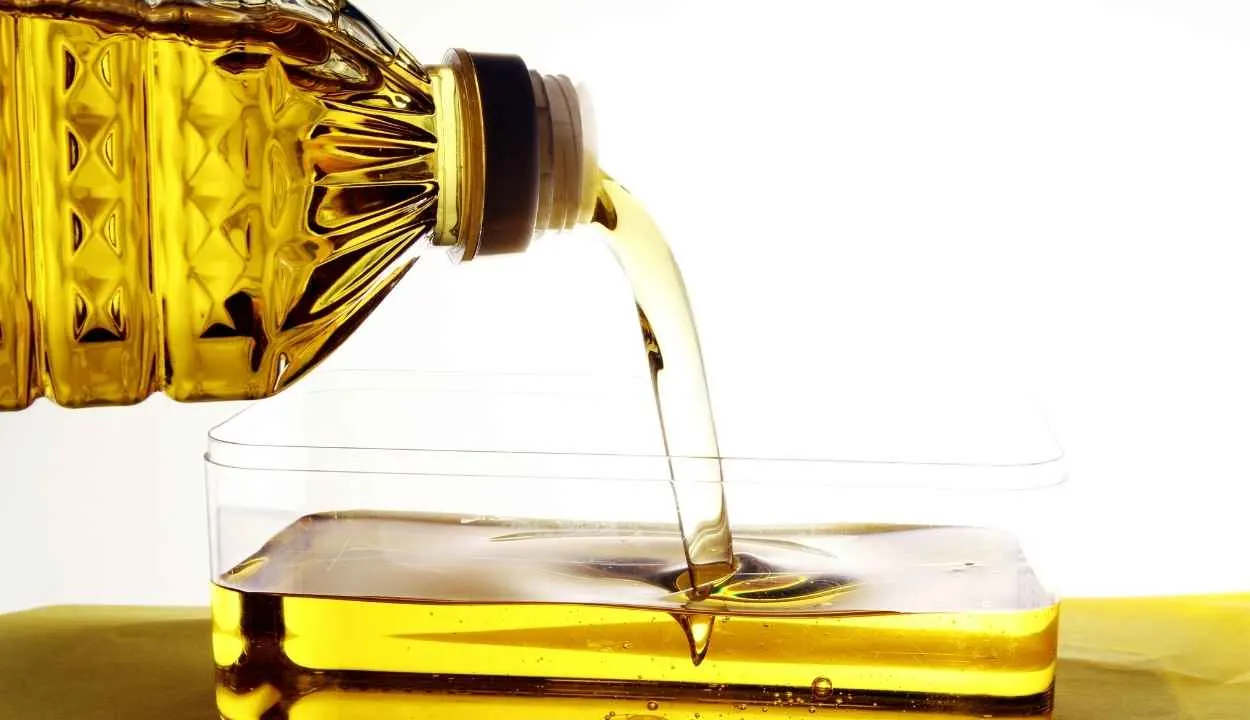Page Contents
There are times when you tend to be forgetful and leave bottles of vegetable oil in the kitchen drawer for so long until their expiry date.
So, how do you overcome this situation when you accidentally used expired vegetable oil? What are the risk factors?
Read on to find out.
What is a Vegetable Oil?

Vegetable oil is a type of cooking oil that was processed and extracted from plants, seeds, or other fruits. This can be used interchangeably with any cooking oil but in moderation.
Any oil undergoes the process of change when exposed to a different type of temperature. That is why it is important to keep your oils in a secure bottle and store it at the proper temperature.
Can Eating Expired Vegetable Oil Make You Sick?
You can get sick by consuming expired vegetable oil since it’s not safe to consume by the best-by date. The expired vegetable oil holds bacteria build-up, and the free radicals consumed can make you instantly ill or be the cause bearer of chronic diseases
Here are some tips to avoid getting sick because of vegetable oil:
While prolonged use of expired oils may not kill you or make you sick, these chefs advise ensuring you’re doing what you need to do while saving money by stopping buying too many of them or buying them when you’re ready. Expired oil probably won’t kill you or make you sick, but to make your food taste better, follow these chefs’ advice, stop buying too much oil, and stock up on what you need when you need it.
This leads to the next question:
Can rancid or expired cooking oil make you sick?
If you’re concerned that vegetable oil might be rancid, you can tell by the taste. If the oil has an unpleasant sweetness, “like fermented fruit or fruit that has just gone completely bad,” it has gone rancid. The biggest problem is that the oil spoils, and its taste changes and becomes rancid after a while.
While rancid butter can taste bad, it usually doesn’t make you sick, at least not for long. Food cooked with rancid oil will taste bad and taste unusual, and unpleasant. Eating rancid edible oil can make you taste bad, but it won’t make you sick right away. Despite its unpleasant taste, the oil obtained from rancid seeds may not make you feel sick once you consume it.
Rancidification of an Oil
Cooking in rancid olive oil won’t make you sick like contaminated meat, but it may lose its nutritional or antioxidant value. Rotten butter won’t make you sick like rotten meat, but the oil will have an unpleasant taste that can ruin a recipe. Rancid food may not make you sick, but you may not want to eat it because the taste and texture can be unpleasant.
| Conditions | |
| Stay Cool | Keep them in a cool environment. |
| Avoid light | Keep them in a dark place. |
| Away from heat | Keep them in a place where there is no heat. |
Eating rancid food won’t make you sick, but the new molecules produced by oxidation can lead to digestive problems. In a short time, rancid butter can cause indigestion and impart an unpleasant taste to food. If you experience an unpleasant or rancid taste when eating food fried in oil, your oil has gone sour and should be thrown away.
It may happen that you use rancid vegetable oil without realizing it, only to notice that the dish you have prepared has a strange taste.
For example, the taste will be off-putting if you use vegetable oil as a salad dressing or cook an entire salad or pastry. However, another point is worth noting: the taste of oil changes over time, and in many cases, you will not be happy with these changes, especially if you plan to use vegetable oil in a salad. As I said above, the taste of butter changes over time, so after a few years, the butter won’t be of good quality, and even if it doesn’t go bad, you’ll probably decide to throw it away because it’s rancid.
When exposed to air and sunlight, vegetable oils begin to lose their characteristic flavour and aroma due to oxidation reactions, which can eventually spoil them.
The natural antioxidants in vegetable oils help fight spoilage, but all oils deteriorate over time, producing unpleasant odours and tastes, especially during air exposure. When it comes to rancid or expired vegetable oil, there is no doubt that it will smell bad, taste bad, and lose some antioxidants, but eating foods made with expired vegetable oil won’t make you sick.
If you’re interested in does Malibu rum go bad, take a look at my other article.
Moderate Consumption of Rancid Oils
Excessive consumption of expired or rancid vegetable oil for a long time is associated with forming free radicals in the body, which can cause harmful effects. Rancid vegetable oil contains carcinogenic free radicals, and if one consumes such vegetable oil in large quantities for a long time, these free radicals will disrupt the body’s normal functioning. Cooking with recycled vegetable oil can also increase free radicals in the body, which can cause inflammation, which is the root cause of most diseases, including obesity, heart disease, and diabetes.
Short-term consumption of rancid vegetable oil will not cause serious health problems. Still, if you consume rancid vegetable oil for an extended period of time, it can lead to an increase in free radicals in the body, which in turn can damage the body’s cells, proteins and DNA.
Rancid edible oil can generate harmful free radicals that cause long-term cellular damage and potentially lead to chronic disease. Expired oils contain harmful bacteria and toxins that can lead to serious health problems.
In this article, I will discuss the dangers of consuming expired oils.
Today, the editor will explain to you whether the expired vegetable oil can still be used if it is sick, how to judge whether the vegetable oil has deteriorated, and how eating it will affect the body.
To learn about how to dissolve cinnamon powder in coffee, check out my other article where I cover things in detail
If food is not cooked to a safe temperature, deep frying in hot oil can cause food poisoning. Baking or cooking with rancid oil entails food wastage because the end result is almost putrid (ask me how I know…).
Edible oils like olive, corn, vegetable, and canola oils don’t dry out or break down in food like hardening oils. Still, edible oils like olive oil can discolour your utensils, thicken, and turn rancid, causing spoon irritation and cuts. The boards look rotten. There is anecdotal evidence that when olive oil tarnishes a little, it takes on a slightly tart flavour that some people enjoy.
How to Store Vegetable Oil

Vegetable oil has its expiry date, but to ensure that it stays fresh, there are certain conditions it should be stored in. You may keep a sealed or unsealed oil bottle in your pantry or in your refrigerator. It is important that the location is dry and cool and free of heat and moisture.
Uses for Expired Vegetable Oil
Instead of throwing that expired vegetable oil away, you can utilize it for many activities other than cooking.
Make a fun DIY lamp. Use it as a lubricant around the house. Metal objects such as knives can be prevented from rusting using vegetable oil. Leather preservation and furniture polishing also utilize outdated oil.
How long can you keep vegetable oil?
You can keep a properly stored and unopened bottle of vegetable oil for up to 1 year, but make sure not to use oil after the best-before or expiration date.
Conclusion
- Vegetable oil is an oil extracted from plants, seeds, and fruits.
- Vegetable oils that are kept for too long undergo rancidification.
- Rancidification is a chemical process where fat molecules break down, losing their nutritional and antioxidant value.
- To avoid rancidification, keep oils in a cool environment and away from excessive heat and light.
- Too much consumption of oils beyond their expiry date allows the formation of free radicals, which is harmful to the body.

